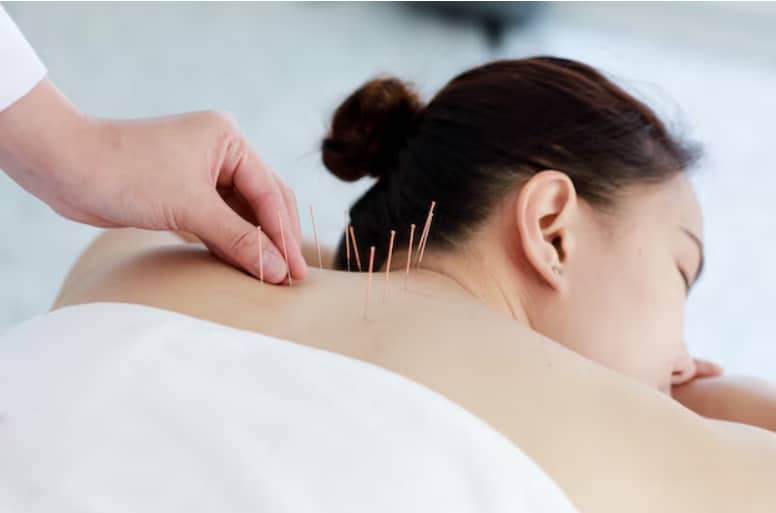
Acupuncture releases trapped emotions by balancing the body’s energy (Qi) and addressing physical and emotional blockages. While acupuncture is often used for physical ailments, it also triggers emotional releases, such as crying, anger, or unexpected feelings. These responses occur as acupuncture helps release suppressed emotions and trauma stored within the body. By stimulating specific acupoints, acupuncture helps unblock energy stagnation, allowing the body to process and heal from unresolved emotions. Understanding why these emotional releases happen can provide reassurance and enhance the healing process, making acupuncture a powerful tool for both physical and emotional well-being.
Can Acupuncture Release Trapped Emotions?
Yes, acupuncture can release trapped emotions by stimulating energy flow and unblocking emotional stagnation stored in the body. This often leads to emotional release, such as crying, laughter, or deep relaxation.
Acupuncture is based on the principles of Traditional Chinese Medicine (TCM), which views emotions and physical health as interconnected. Emotional trauma and stress can become stored in the body’s energy channels (meridians), leading to physical symptoms like tension, pain, and fatigue. By stimulating specific acupuncture points, the treatment can Unblock stagnated energy (Qi), regulate the nervous system, and influence neurotransmitters like serotonin and dopamine, improving mood stability. Many people experience emotional releases during or after treatment, such as crying, sudden mood shifts, or even unexpected joy.
These responses are normal and indicate that the body is healing on a deeper level. Over time, acupuncture helps restore emotional balance, leading to improved mental clarity, reduced stress, and a greater sense of well-being.
Why Do I Cry After Acupuncture?
Crying after acupuncture is a natural response linked to emotional release. Acupuncture works by stimulating the nervous system, balancing energy flow (Qi), and unblocking stored tension. As a result, suppressed emotions such as stress, grief, or unresolved trauma can surface, leading to spontaneous crying.
Acupuncture triggers the body’s natural healing mechanisms by nervous system regulation, meridian connection to emotions, and hormonal & neurotransmitter effects, which include the release of both physical and emotional blockages. The nervous system shifts into a relaxed state, allowing emotions that have been buried, whether from stress, trauma, or unresolved grief, to surface. This can lead to spontaneous crying, even if there is no immediate cause.
In Traditional Chinese Medicine, the Lung meridian is associated with grief, and when stimulated, it can bring up deep-seated emotions. Crying during or after acupuncture can be a sign of deep healing. It allows the body to release tension, process unresolved emotions, and restore emotional balance. Many people report feeling lighter, calmer, and more at peace after experiencing this reaction.
If the emotional release feels overwhelming, discussing it with an acupuncturist or a mental health professional can provide further support.

Why Am I So Angry After Acupuncture?
Feeling angry after acupuncture can be a sign of emotional release as the body’s energy (Qi) is rebalanced. Traditional Chinese Medicine (TCM) associates the Liver meridian with anger, frustration, and stress, and stimulating these energy pathways may bring up suppressed emotions.
Acupuncture encourages emotional detoxification by unblocking stagnant energy. In TCM, the Liver meridian is associated with anger, stress, and irritability. When acupuncture stimulates these points, trapped anger may rise to the surface, leading to temporary frustration or irritation.
This reaction is not a negative side effect but a sign that the body is processing and releasing old emotions. Just like crying, anger is a normal and necessary step in emotional healing. Practicing mindfulness, deep breathing, or light physical activity after a session can help manage these emotions.
Over time, as emotional blockages clear, these intense reactions lessen, leading to improved emotional stability and inner peace.
What Does It Mean When Acupuncture Really Hurts?
Acupuncture should not be extremely painful, but discomfort can occur if there is energy blockage, tension, or heightened sensitivity. This often indicates areas needing healing.
Acupuncture is generally painless, but some people may experience sharp or intense sensations at certain points. This can happen when energy is stagnant or a blockage is being released. In TCM, pain during acupuncture often indicates Qi stagnation, meaning energy is not flowing properly.
Areas with inflammation, tight muscles, or emotional stress may be more sensitive. A mild aching or dull pressure sensation is normal, but severe pain is not. Communicating with the acupuncturist ensures adjustments can be made for a more comfortable experience.
Over time, as blockages clear and the body adjusts, sensations during treatment typically become more subtle, leading to a more relaxed and effective healing process.
Conclusion
Acupuncture can trigger emotional and physical responses as it releases trapped energy and emotions. Crying, anger, or temporary discomfort are signs of healing rather than negative reactions. Understanding these responses helps embrace acupuncture as a powerful tool for both emotional and physical well-being.

